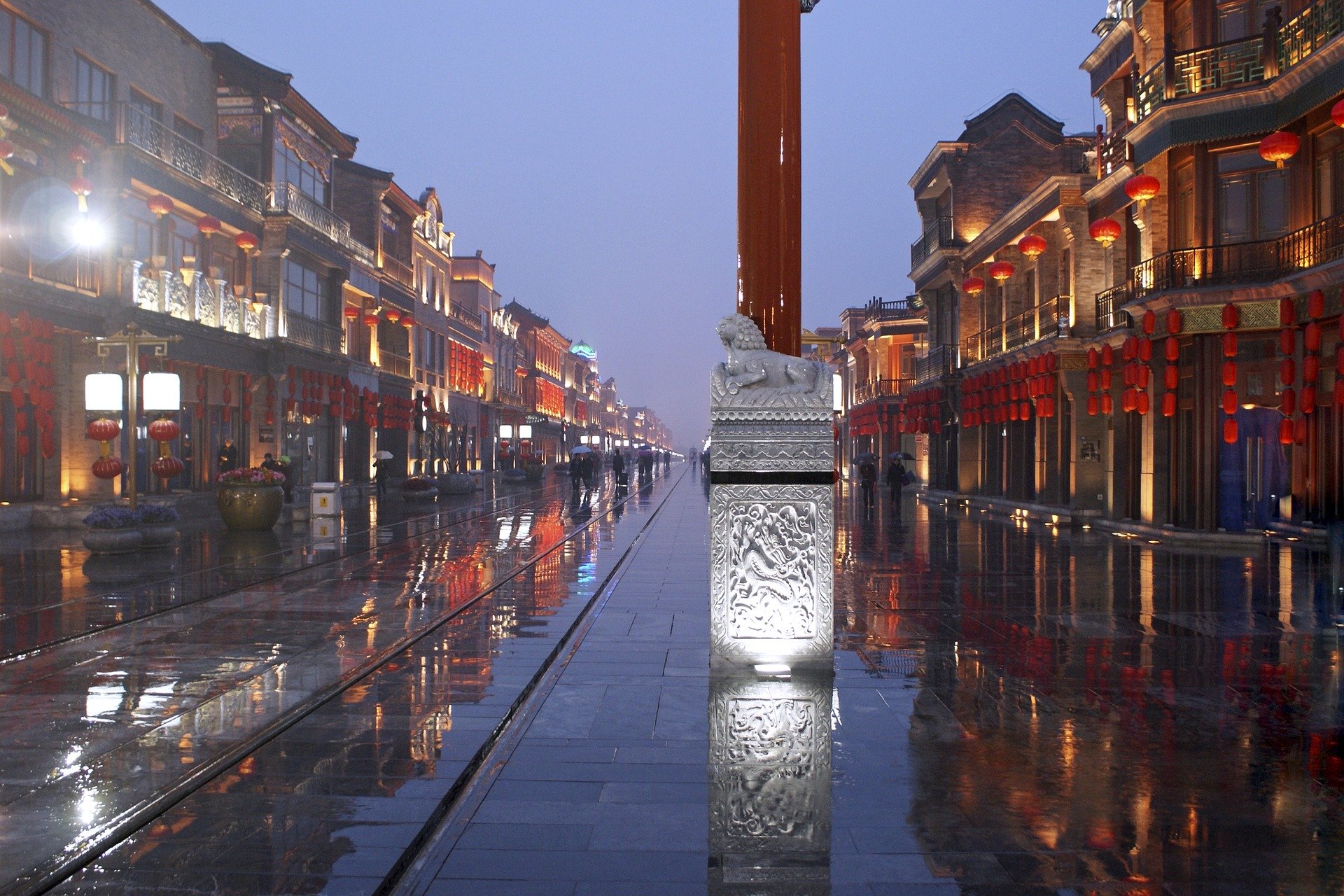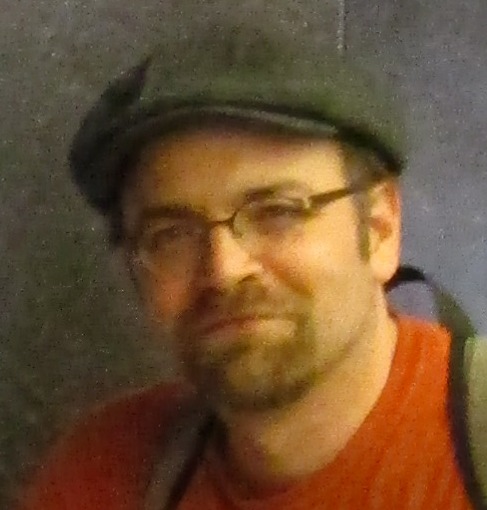How do we change and rise? The story of my life in China and my eventual, painful return to the United States offers one illustration. When I first heard of Kazimierz Dabrowski’s theory of positive disintegration, I thought that it described very well what happened to me as part of my expat experience, which I believe I began in a state of primary integration.
But China would offer many experiences to disintegrate—and to see if I might be able to reach a higher level. My experiences were bad and I suffered a great deal, but perhaps now they may prove of use to someone.
How I Landed Myself in a Chinese Backwater
I got to China because I was lazy and spiteful. When I started college in 2000, I failed to test out of the foreign language requirement: needing a 650 on the French SAT II, I got a 640. The trajectory of my adult life was thus determined by getting a single question wrong on a standardized test. If I’d gotten it right, I would never have studied a new foreign language, which means I would ultimately have become a person very different from the man I am today. I would probably have failed as a systems administrator by this point and become permanent ballast in my parents’ basement, focused on absorbing microwave burritos and cheap scotch.
But, instead, I took Chinese.
I began my study of Mandarin mainly because I wanted to get back at all those Chinese-speaking kids in my high school whom I couldn’t understand at the time. At the beginning I’d only intended it as a way of fulfilling a requirement; I intended to make it big in computer science and design video games for chic, well-funded studios. I ended up majoring in it, however, because I was able to get reasonable grades without undue effort and I proved to be a dud as a programmer.
I crept out of college with an overall GPA below 3.0, but with good grades in the classes I’d actually cared about. My father told me that I’d graduated summa cum nada. His wise words were followed by my discovery that the American economy did not have a lot of interest in people who’d focused on avant garde Chinese literature of the 1980s and couldn’t be bothered to do their homework. I tried to find a job in the States and got nowhere.
So I looked online for jobs in China. I found a company that promised me a wonderful opportunity to teach English in Suzhou—a national beauty spot known as the “Venice of China” on account of its many waterways and dynastic gardens. I was excited. I said I would go. It was all so stimulating!

But then the company pulled a switcheroo on me at the last moment: the opportunity in Suzhou, they said, had dried up and, sorry, I would be going to Yancheng instead.
Yancheng? I hadn’t heard of it. But I said yes. When I got there, I found that while Yancheng also had canals. They were miry and had dead pigs in them. While Suzhou is famous for silk, Yancheng is known for these ugly crabs that have a fur-like substance growing on their claws and for a root that will purportedly turn your hair black if you eat it. There was a fresco on the main bridge in town that showed a peasant girl killing a Japanese invader with a pair of scissors. The city has been around for probably around 2,000 years and has always sucked.

Yancheng was a great place to experience the awfulness of unilevel disintegration. The population in the city center was about 800,000 at the time—a flyspeck by Chinese standards. This included twenty-four English-speaking foreigners, most of whom worked at schools, but with a few businessmen as well. I was the only one who knew any Chinese. Local Yanchengers stared at us a lot and were aggressively curious about everything that someone like me might have going on in his life. Of particular interest was my salary; it was only about $9,000 a year, but this made for sumptuous living by local standards.
It also proved to be the place where my rise to higher levels of development would haltingly, unwillingly begin.
Unilevel Disintegration in China
In a situation like this, healthy adjustment was impossible. The expat community was too small and the local society too chaotic to permit a foreigner that kind of coherent existence. I struggled with persistent illness, homesickness, and invasion of privacy, all of which meant I failed utterly to adapt and wrestled with the ambivalences that characterize Dabrowski’s level II, unilevel disintegration.
I was also morally underdeveloped. By this I do not mean that I was dissolute, but that I mainly responded to events around me rather than driving or resisting them. Or intervening. One day, while I was out walking, I saw a young girl on a bike struck by a bus in the middle of an eight-lane road. I froze. Chinese traffic is a terrible, primal force that mangles life. The girl was about sixty feet from me. I had no idea what to do. Should I call for help? Was it okay to even do anything, as a foreigner? I did not know.
While I stood inert, thankfully, someone else acted. I saw a local man charge out into the stream of vehicles, haul the child from her bike, and run off in another direction with her in his arms. I am grateful that I witnessed it. His act was my first powerful impression of virtue, and became the seed of my understanding that, in life, there is a higher and a lower path. It spurred in me that level III dynamism that Dabrowski calls hierarchization.
I saw a local man charge out into the stream of vehicles, haul the child from her bike, and run off in another direction with her in his arms. His act was my first powerful impression of virtue, and became the seed of my understanding that, in life, there is a higher and a lower path.
Shimmerings of an Ethic Emerging
After two years of life in the Chinese equivalent of Muncie, I burned out. I had to come home. So, in 2006, I returned to America and, given that the economy seemed only slightly more interested in my skills, I found a desk job—at which, bluntly, I under-performed.
It’s not that I did things wrong, really; I had just developed a rigid resistance to doing anything that took my time away from me. At age 24, I had grown more self-directed and developed an inarticulate sense of what I would do with myself. It’s not that I did things wrong, really; I had just developed a rigid resistance to doing anything that took my time away from me. At age 24, I had grown more self-directed and developed an inarticulate sense of what I would do with myself.
On April 1, 2007, I got my hands on my first Ancient Greek textbook and starting teaching myself the language. I mention this here because of the role my language study played in my ability to establish a hierarchy in ethical situations. Previously, my choices were decided mainly by convenience; now, they could be stacked up against whether they were better than learning about the Greek verb or not. Silly as it sounds, this is the truth.
And most things, candidly, were not. Paperwork certainly wasn’t. I was nearly fired. I understand that many people will think that this behavior was actually highly unethical because it resulted in frustration to my colleagues and superiors, which is undeniable. But I will remind the reader of the opening line of Aristotle’s Nicomachean Ethics, with which I ultimately became familiar: Every art and every inquiry, and similarly every action and pursuit, is thought to aim at some good (Πᾶσα τέχνη καὶ πᾶσα μέθοδος, ὁμοίως δὲ πρᾶξίς τε καὶ προαίρεσις, ἀγαθοῦ τινὸς ἐφίεσθαι δοκεῖ ). My point is that I had begun to discover a good at which to aim, and my decision-making began to be governed by priorities that pointed to the achievement of that end. I did not think it was positive to balk at filling out visa paperwork for college students or to show up late for meetings—which meant I needed another course correction.
I had begun to discover a good at which to aim, and my decision-making began to be governed by priorities that pointed to the achievement of that end.
This is how my nascent pursuit of the good led me back to in the People’s Republic. I knew I had to find my way back to China, and to speaking Mandarin, since it was the only skill I had.
Thanks to both luck and tenacity, a series of fortunate connections followed. I impressed the right person with my knowledge of Ancient Greek writing and an obscure Chinese text, which caused him to forward my name for an interview with China Central Television. That’s how I ended 2007 as a host for a show on China’s CCTV-10 called Outlook English. Nominally intended to teach English to the domestic Chinese audience ahead of the Olympics, they quickly discovered that non-Mandarin content was bad for ratings. As a result, Outlook English had almost no English. My job was essentially to be a white guy who speaks Chinese. I’m aware that this impresses people, but it shouldn’t. The work was often silly, even occasionally embarrassing. The most memorable moment was where my co-hostess pretended to paralyze me while I was inflating a duck carcass in a restaurant once visited by Al Gore.
I ended 2007 as a host for a show on China’s CCTV-10. My job was essentially to be a white guy who speaks Chinese. I’m aware that this impresses people, but it shouldn’t.
The Bookshop of the Fearless Mind
It was an experience outside the office that kept my time with CCTV from being a total moral waste. After work, I would go to a little tea house; it had a book shop on the first floor called the Sunway Salon. The proprietors, a married pair of old-school intellectuals, had suffered terribly under Mao: the man had been in jail for many years during the Cultural Revolution and the woman was under house arrest during the Anti-Rightist Movement. When reform and opening came, they vowed to open the first privately-held bookshop in the capital.

It took them ten years to make this a reality, but they were finally able to go into business in 1988, and had not stopped since. The authorities kept arresting the speakers for their salons as they were on their way to the shop. They were harassed by real estate developers who wanted their property. Security officers penetrated their meetings. Several of their confidants were thrown in jail or kept under close surveillance. Free-thinking editors in their circle were constantly being fired. And yet they kept on going. They were elderly and had suffered much in their lives, but had become people convinced of a final reality: if life was ultimately a decision between harsh virtue and plush comfort, they would choose virtue, even in defiance of a powerful external authority.
Looking back with a Dabrowskian lens, it was clear they had determined their authentic values and committed to following that higher path. It was like the good that I had been pursuing with putting Greek before office work, but on a vast and grander scale: it decided the course of their lives. It is a spirit that I encountered once in my reading of twentieth century history, in the childhood of Joachim Fest, the German journalist and critic. Born in 1926 to a conservative Catholic family in Berlin, his father was a staunch opponent of the Nazis. This opposition ultimately caused the upright parent to lose his position as the head of a local school, whereupon he called Joachim and his brother into his study and commanded them to copy out a line from the Vulgate version of Matthew. And it was:
Etiam si omnes, ego non.
Even if all others – not I. Joachim’s father impressed upon them the force of conviction and the individual mind in the face of Hitler’s juggernaut. And this poor old couple – beaten, harassed, imprisoned, and violated – were devoted to their own cause of freedom and the liberal mind with a similar, unquestioning firmness that comes from within.
I was not like them, but I remembered and I learned.
In our next issue: Max faces an onslaught that threatens him with negative disintegration, unless he can manage to hold on to that hierarchy of values.




